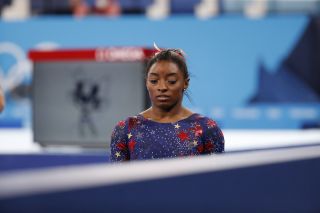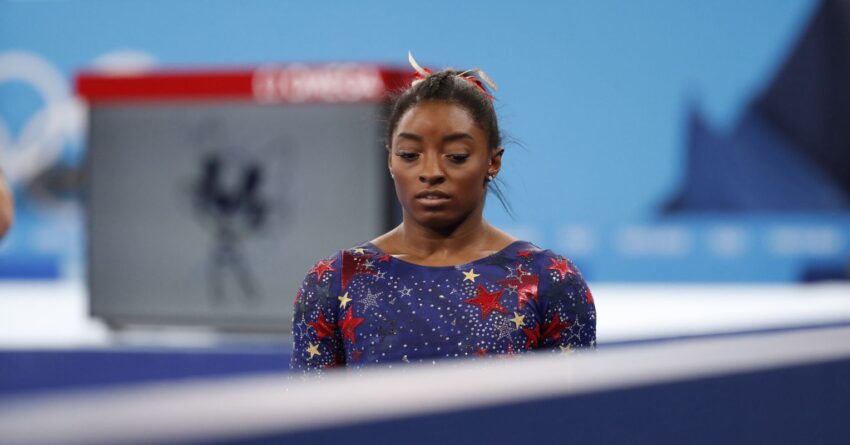A culture grounded in competition is uncertain, unreliable, and unsafe. The more unsafe we feel, the more we defend, protect, or fight for what we need to feel safe.
The more we fight for what we need to feel safe, the more we see others as competitors in our way. The more we see others as competitors in our way, the more we lock into a state of threat.
The more we lock into a state of threat, the more we don’t trust others. The more we don’t trust others, the more unsafe our body feels.
The more unsafe our body feels, the more we defend and protect what we’ve accumulated to feel safe. The more we defend and protect what we’ve accumulated, the more we see others trying to take what is ours.
The more we see others trying to take what is ours, the more unsafe we feel.
So now, here we are, at the top. We’ve battled our way to get here, defeating the competition along every step up the ladder of success.
We made it. We won. We achieved everything we thought we needed to feel safe. On top. Alone. Fighting, defending, and protecting what we have to feel safe.
Unable to trust others. Unable to trust that it’s safe to feel safe. Unable to trust that it’s safe enough to be who we are, nothing more, nothing less.
Culture of Competition and Constant Evaluation
This is a deliberate oversimplification of a complex process occurring beneath awareness within the nervous system. Paralleling this culture of competition is one of constant evaluation; the competition we face may be against our “inadequate” selves, or an unfair system, and alongside our need to feel safe may be an enduring motivation to prove ourselves worthy of being good enough.
Embedded within this culture of competition and evaluation is a hidden cycle of danger, disconnection, and distrust pitted against our biological quest for safety, trust, and connection. The more we dismiss this instinctive longing to belong, the more we shift our physiology into a state of threat. The more we attack, defend, and protect, the more we risk finding ourselves constantly seeking, restless, anxious, impatient, insecure, detached, exhausted, lonely, numb, and unfulfilled.
Does feeling our body compromise our ability to play in this combative, winner-take-all game? Is our culture functionally “training out” our natural capacity to feel safe, connected with others, and a sense of belonging? Are we setting ourselves up for a society chronically locked into a physiological state of threat and primed to attack, defend, and protect?
This is not a problem to be solved, but a paradox to recognize, respect, and relate to in ways that align with our biological need to feel safe.
Mental Health at the Olympics
As we approach the start of the 2024 Summer Olympics in Paris, we are reminded of the “mental health issues” spotlighted by the Tokyo Olympics and how this paradox played out right before our eyes.

U.S. Olympic gymnast Simone Biles, July 26, 2021, Tokyo 2020 Olympic Games
Source: A.RICARDO / Shutterstock
When Simone Biles, the most decorated gymnast in history, described herself as “always feeling anxious” and how it “got really bad” in the months leading up to the Olympics, we are getting a glimpse into a body that was primed to be hypervigilant, on-guard, and ready to attack.
When Jenny Rissveds, the youngest-ever Olympic cross-country mountain bike champion, expressed how “proud, empty, full, emotional and very relieved” she felt after losing the gold four years later so that she could just go back to being “Jenny now, and not the Olympic Champion,” we can empathize with how uncomfortable she must have felt on the inside, having to uphold the image of a champion.
When Olympic figure skater Gracie Gold opened up about her bouts of depression and wanting to “check out early” only to be told that “we don’t talk about those things out loud,” we are confronted with the underlying message of a performance-based culture, whether we like it or not.
When Novak Djokovic looked like he was intentionally giving up on his dream of winning the Golden Slam, and we screamed at his two-dimensional image on the screen to suck it up, figure it out, and fight, we were detached from his humanity and expressing our own emotional discomfort and physiological state of threat.
Sport and Competition Essential Reads
Whereas when we cried alongside Simone in her courage, Jenny in her relief, Gracie in her letting it all out, or Novak in his emotional exhaustion and pain, we connected to the same struggles, vulnerabilities, and protective armor that we share with them. When each one of them broke down, poured out their hearts, and finally let go of the overwhelming pressure to perform, we felt a deep sense of relief, support, and freedom right along with them.
More than the accumulation of money, power, status, and stuff, safety is a feeling in the body. More than the removal of threat, safety is a feeling that we aren’t alone. More than a self-regulatory experience, safety is a reciprocal, face-to-face, co-regulated relationship of giving and receiving with a trusted other.
Although our culture is fixated on figuring things out by ourselves, going out on our own, and fostering self-regulation, “we evolved to be a co-regulated species,” says Stephen W. Porges, Ph.D.
Physiologically, the journey to feeling safe is through a trusted relationship with someone else, not through fighting, winning, or accumulating what we think we need to feel safe. When we align with our physiology and recognize whether we feel safe or unsafe, connected or disconnected, we can find ways to help our bodies begin to trust one another again.
